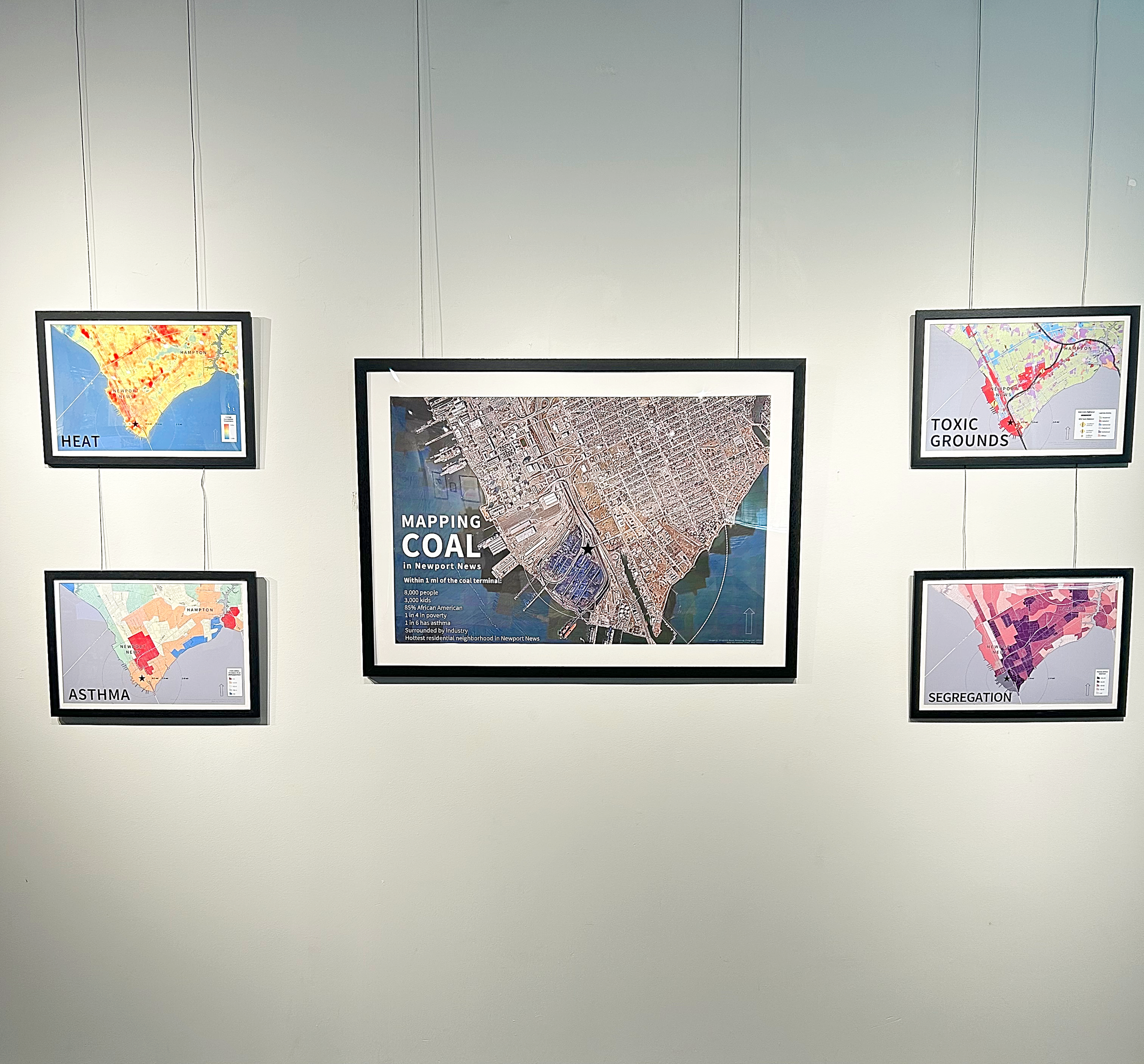About the Exhibit
Evidence: Coal Dust in Hampton Roads focuses on the coal dust pollution that has plagued Southeast Newport News residents for decades. Data, stories, photographs and maps illustrate the day-to-day effects of coal dust on people’s lives in this historically Black neighborhood. These materials come out of the 2+ years of research and engagement led by the Coal Dust Kills campaign, initiated by the Repair Lab at the University of Virginia. The goal of the exhibition is to connect residents with research and each other in order to build power and momentum in the fight for a clean, healthy neighborhood, free from coal dust. The exhibition features:
Photographs from home visits with East End residents dealing with the daily effects of coal dust.
An interactive station with access to the Repair Lab’s growing online archive, Voices in The Dust, where all their data and research around anti-coal dust advocacy will be publicly available – including air monitor data, policy research and oral histories.
A civic engagement training that will inspire and empower residents to collaborate with decisionmakers about problems in their community.
Live viewing of the short documentary film Coal Blooded (Brandon Davis, 2022), about coal dust pollution in Hampton Roads.
Maps by public scholar Johnny Finn detailing the unequal effect of coal dust on Black residents in Hampton Roads.
The Repair Lab is a group of activists, researchers, and artists focused on environmental justice in Virginia. The Repair Lab develops projects through its Practitioner-in-Residence (PIR) program that supports activists with financial, technical, research, and networking resources to identify policy solutions to environmental problems facing their communities. The Coal Dust Kills campaign was developed as a collaboration with former Repair Lab PIRs Lathaniel Kirts and Malcolm Jones with the guidance of Yugonda Sample-Jones, as well as Newport News residents and advocates. The Repair Lab has produced an extensive collection of research, knowledge, interviews, photographs, and evidence around coal dust. A small portion of this work, including interviews with residents, is featured on the website coaldustkills.com and in Crosswinds (2024), a five-episode investigative podcast featured on WHRO. More of this collection will be available through the forthcoming digital archive, Voices in the Dust.

















































